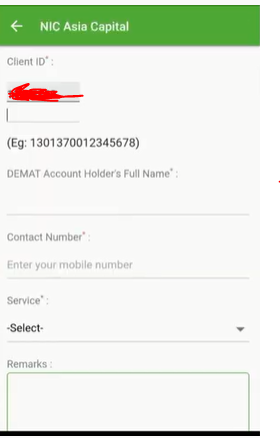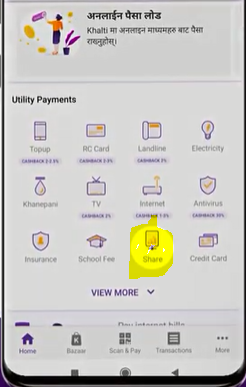We can easily renew both Demat and Mero Share accounts from home online. We can do this from two applications from our smartphones. So mainly we should have an account on any one of those to do the renewation. But first, to renew your Demat and Mero Share account you should know the expiry date of respective accounts. To know the expiry date just goto the 'My Details' section and look for 'Account Open date'.So every year before that day you should renew your accounts.
So here before 24 December, I have to renew my Demat and Mero Share account to continue my transaction every year.
(1)From E-Sewa
From our e-sewa account, we can easily renew our Demat and mero share account. So for this, we first set up e-sewa application from the play store and then put the balance on your e-sewa account. After this open up your e-sewa account and click on the 'Finance and EMI' option.
After clicking on that click the 'Finance' option and search the banks or brokers from where you open your Demat account and after that screen will look like this:
Then fill all the details asked as per your details on the Mero Share account. Put your full name on 'Demat Account Holder's Full Name' and contact details on the 'Contact Number' option. In the 'Service' option select the account you have to renew as only Demat or only Mero Share or both as per the expiry date of your accounts. For Demat account Rs.105 and for Mero Share account Rs.55 will be deducted from your E-sewa account Rs.5 more on each account renewal than when we do from the bank directly.
(2)From Khalti
We can also renew our accounts from Khalti also. First, we have to set up our Khalti account and put the balance on our Khalti wallet. After this open up Khalti and click on the 'Share' option.
After that select, the company from where you open your Demat and Mero Share account and fill all the links as per your detains on Mero Share profile.
Select the account you want to renew at the top of your screen and fill up all the information as asked there. Rs.100 will be deducted for Demat account renewal and Rs.50 will be deducted for Mero Share account renewal from your Khalti wallet.




















